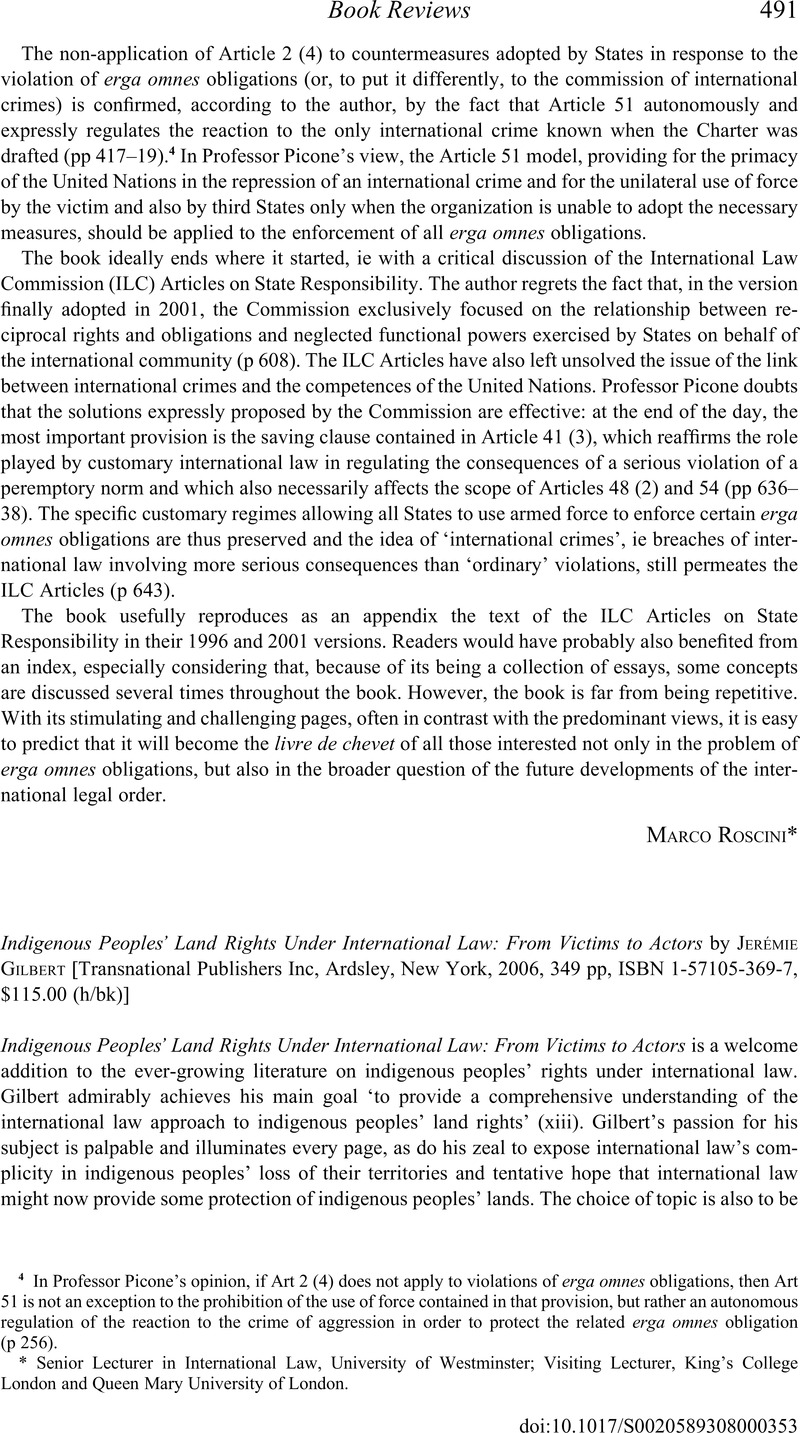No CrossRef data available.
Article contents
Indigenous Peoples' Land Rights Under International Law: From Victims to Actors by Jerémie Gilbert [Transnational Publishers Inc, Ardsley, New York, 2006, 349 pp, ISBN 1-57105-369-7, $115.00 (h/bk)]
Review products
Published online by Cambridge University Press: 09 May 2008
Abstract

- Type
- Book Reviews
- Information
- Copyright
- Copyright © 2008 British Institute of International and Comparative Law
References
1 In contrast, other commentators provide a broader overview of all indigenous peoples' rights under international law in which land rights are only one of many foci. See, for example, SJ Anaya, Indigenous Peoples in International Law (2 edn, Oxford University Press, Oxford, 2004).
2 A number of decisions involving indigenous peoples' claims to property have been decided on the basis of the right to freedom from discrimination. See, for example, Mabo & Ors v State of Queensland (1988) 83 ALR 14; and United Nations Committee on the Elimination of Racial Discrimination ‘Decisions 1(66): New Zealand Foreshore and Seabed Act 2004’ (11 March 2005) CERD/C/66/NZL/Dec.1.
3 United Nations Declaration on the Rights of Indigenous Peoples, Human Rights Council Res 2006/2 (29 June 2006) in UN Doc A/HRC/1/L.10 and reflected in a comparison between Articles 26 (1) and 26 (2).
4 For example, Māori have argued that New Zealand's Treaty settlements' regime breaches the Convention on the Right to Freedom from Discrimination. See Treaty Tribes Coalition, ‘NGO “Alternative Report” to the Committee on the Elimination of Racial Discrimination: Submission in Response to the Consolidated Fifteenth, Sixteenth and Seventeenth Periodic Report of New Zealand’ and available at <www.ohchr.org/english/bodies/cerd/cerds71.htm> (last accessed 14 August 2007).
5 For example, RL Barsh, ‘Indigenous Peoples in the 1990s: From Object to Subject of International Law’ (1994) 7 Harvard Human Rights J 33; and P Thornberry, Indigenous People and Human Rights (Juris Publishing Inc, New York, 2002).
6 RA Williams Jnr, The American Indian in Western Legal Thought (OUP, Oxford, 1990); A Anghie, Imperialism, Sovereignty and the Making of International Law (Cambridge Studies in International and Comparative Law, Cambridge University Press, Cambridge, 2005); and P Keal, European Conquest and the Rights of Indigenous Peoples: The Moral Backwardness of International Society (Cambridge University Press, Cambridge, 2003).
7 K Knop, Diversity and Self-Determination in International Law (Cambridge Studies in International and Comparative Law, Cambridge University Press, Cambridge, 2002).
8 See above n 4.
9 UN Special Rapporteur on the Human Rights and Fundamental Freedoms of Indigenous People, ‘Report of the Special Rapporteur on the Situation of Human Rights and Fundamental Freedoms of Indigenous Peoples, Mr Rodolfo Stavenhagen’ (16 February 2006) UN Doc E/CN4/2006/78.


